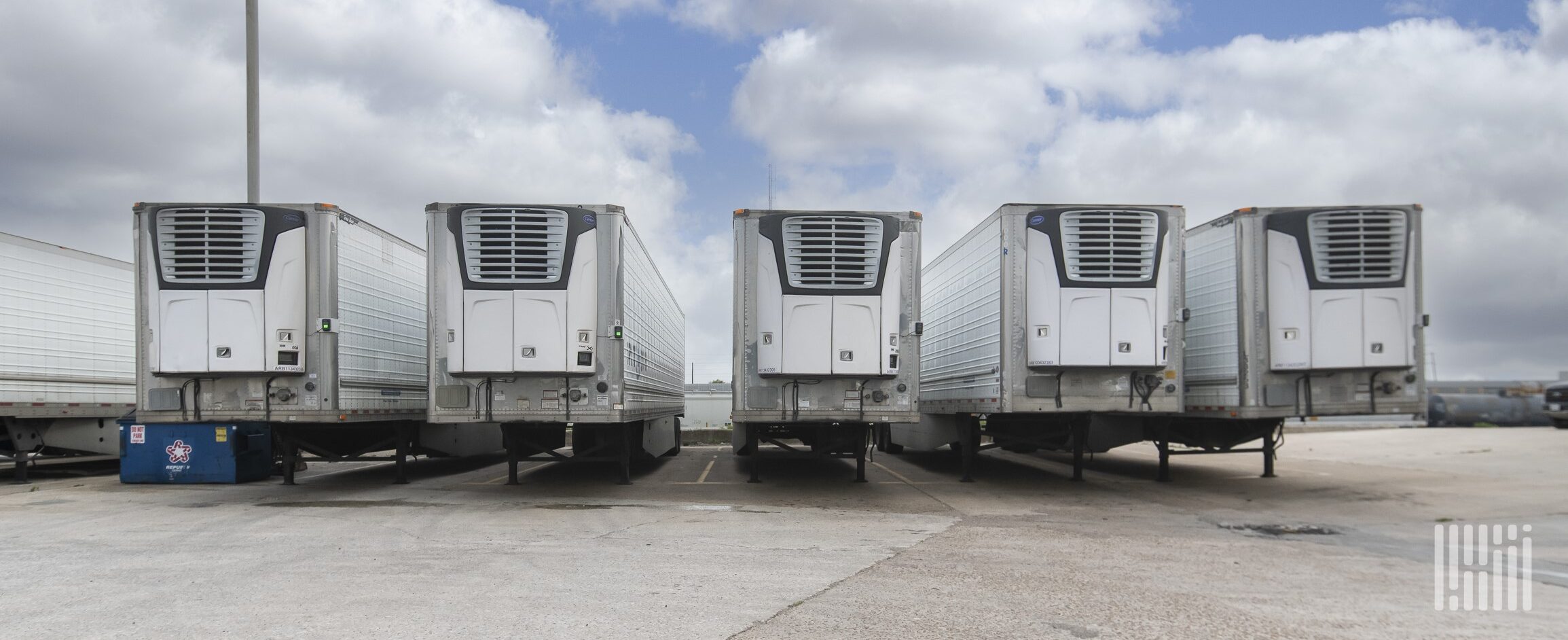Trailer GPS trackers provide invaluable visibility and security for trailer assets that are detached from trucks and on the move. However, there are many options on the market with varying feature sets.
This article will highlight the key capabilities to look for when selecting a GPS tracking solution for trailers. Learn about features like real-time tracking, geofencing, sensor support, battery life, smartphone connectivity, and flexible reporting.
What is a trailer GPS tracker?
A GPS tracker for trailers is a valuable device that can be installed on a trailer to monitor its location and movements. The tracker uses a GPS for truckers to transmit the trailer’s real-time location at regular intervals. This allows the owner to view the trailer’s location and routes taken on a map through a website or mobile app, even when detached from the tow vehicle.
Trailer GPS trackers offer many useful features. Geofencing allows virtual boundaries to be set so alerts are triggered if the trailer leaves or enters a designated area, helping prevent theft. The tracker also monitors speed, ensuring drivers follow speed limits, and excessive speeds can indicate unsafe driving or theft. The trucking GPS trailer tracking options include sensors that track interior temperature too, which is critical for transporting perishable goods.
Other available sensors can detect trailer connection status, door open/close, light on/off, brake status and more. This provides enhanced monitoring and security. Models are available in both wired and battery-powered versions. For low maintenance options, the best trucking GPS options would be the battery-powered models offering autonomous tracking for several months.
Overall, trailer GPS trailer tracking gives owners and fleet managers valuable real-time insights and security for their detached trailers. The best trucker GPS for tracking will help monitor locations, prevent losses, enhance security, check driving behaviors, and provide temperature visibility for cargo. They are an important tool for any trailer owner needing to keep close tabs on their assets out on the road.
Pros and cons of using a GPS trailer tracker
Here are some of the key pros and cons of using trailer GPS trackers:
Pros
- Real-time location tracking: Always know where your trailer is and see its route history. Useful for monitoring drivers and preventing theft.
- Geofencing and alerts: Be notified if the trailer enters or leaves designated areas. Helpful for security.
- Cargo monitoring: Sensors can monitor cargo area temperature, light, door openings, etc. Critical for perishable loads.
- Driving behavior monitoring: Track speed, hard braking, etc. to ensure safe driving and handling.
- Evidence for insurance: Detailed records in case of accidents, damage or theft.
- Fleet management: Improve efficiency, fleet reporting and asset utilization across your business.
- Wired and battery models available: Choose the best GPS for truckers that suits your individual tracking needs.
Cons
- Upfront cost: Purchase and installation has a cost, from $100-$300 per unit.
- Ongoing fees: Most trackers require a paid monthly or annual service plan.
- Power supply: Battery models need changing every few months.
- False alerts: Geo-fences and sensors can sometimes generate false alerts.
- Wired install: Professional install may be needed for wired models.
- Temporary loss of signal: Satellite or cell coverage can be lost in remote areas.
- Privacy concerns: Employees may feel GPS management is invasive. Requires clear policies.
So in summary, a trailer tracking system offers valuable security and monitoring, but requires an upfront investment and ongoing costs. Overall these fleet technologies provide real-time visibility and peace of mind for trailer owners and operators.
Trailer GPS tracker features to consider before buying
Here are some key features to consider when buying a trailer GPS tracker:
- Real-time tracking: Look for frequent location pings every one or two minutes for detailed truck location tracking.
- Tracking history: The best GPS for commercial trucks or trailers will offer the ability to look back at previous routes and stops. A trailer GPS system with enough storage for detailed histories is useful.
- Geofencing: Consider a tracking device for trailers featuring configurable geofences that trigger alerts when entering or leaving set areas.
- Smartphone app: A companion app is a helpful tool for viewing locations, managing geofences, receiving alerts, etc.
- Wired vs battery powered: Battery models offer standalone tracking but require periodic battery changes. Wired ones need professional installation but provide continuous power.
- Cellular vs satellite: Cellular models rely on cell coverage which lacks in some remote areas. Satellite ones work anywhere but can have higher fees.
- Driver behavior monitoring: The ability to track speed, harsh braking and acceleration helps to ensure safe driving.
- Sensor support: Inputs for sensors like temperature, light, and open doors are useful for cargo monitoring.
- Trailer connection status: The best GPS truck tracking systems can detect when a trailer is connected or disconnected from the tow vehicle.
- Installation requirements: Some models require hardwired professional installation. Others can be self-installed.
- Waterproof rating: An IP67 rating or higher provides good water protection in various weather conditions.
- Subscription plans: Compare service plan costs. Look for no contracts or cancellation fees.
Prioritize the features that are most important for your usage. Also consider ease of use, associated mobile apps, and customer support options when choosing the best trailer GPS tracker.
How much trailer trackers cost
The cost for a trailer GPS tracker includes both the upfront hardware cost as well as ongoing subscription/service fees. Here’s a breakdown of typical costs:
- Hardware cost: The upfront cost to purchase the tracker hardware ranges from around $100 to $300 per device. More expensive models have more features and sensor options.
- Activation fee: Some companies charge a one-time activation fee for each tracker, which is typically $50-$100.
- Installation cost: For DIY installs there is no labor cost. But for professional wired installs, expect to pay $50-$150 per tracker for labor.
- Service plans: Most trackers require an ongoing service plan. Plans are usually either monthly ($15-$35/month) or annual ($150-$400/year). Plans enable cellular or satellite connectivity.
- Battery cost: For battery-powered models you’ll need to factor in periodic battery replacement every 6-12 months. Batteries can cost $30-$60.
Keep in mind that business/commercial plans tend to have higher service fees but also offer more features. Costs can vary significantly, so compare options from multiple vendors.
Start benefiting from a trailer GPS tracker
Once you’ve weighed the advantages and disadvantages of using trailer GPS trackers, if you think you can benefit from their features, it’s time to narrow down your choices. Prioritize the features that are most important for your business and find out which offerings fit within your budget. Finally, consider reviews and recommendations from experts and peers before making a final decision.
FAQ
Fleet management is the overarching strategy for managing, coordinating, and tracking vehicles in a centralized manner to maximize efficiency and utilization. It involves techniques like GPS tracking, route optimization, and data analytics.
The best GPS for truck drivers is likely a dedicated truck driver GPS that offers features like truck routing, real-time traffic alerts, hazard warnings, customized truck settings, and easy cab mounting.
You can track a stolen trailer by having a GPS tracking device hidden on the trailer that transmits real-time location data that you can monitor via a website or mobile app to see where the stolen trailer travels. This allows police to potentially intercept and recover it.


